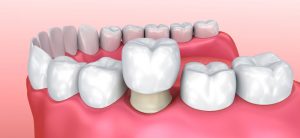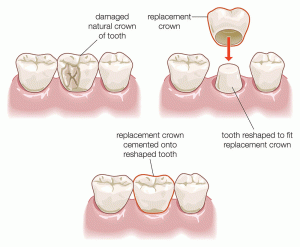Can You Cap All Your Teeth?
Understanding Dental Caps
What are Dental Caps?
Dental caps, commonly known as dental crowns, are prosthetic devices designed to cover and protect damaged or weakened teeth. They are often recommended by dentists to restore the shape, size, strength, and appearance of a tooth. Dental caps are typically made from various materials such as porcelain, ceramic, metal, or a combination of these materials.
When Are Dental Caps Necessary?
Dental caps are recommended in several situations, including:
Tooth Decay: When a tooth is severely decayed and a regular filling is not sufficient, a dental cap can be used to provide extra support and protection.
Cracked or Chipped Teeth: Teeth that are cracked or chipped due to accidents or trauma can benefit from dental caps to prevent further damage.
Root Canal Treatment: After undergoing a root canal procedure, a dental cap is often placed to strengthen the tooth and prevent fractures.
Cosmetic Purposes: Dental caps are sometimes used for cosmetic purposes to improve the appearance of misshapen or discolored teeth.

Can You Cap All Your Teeth?
Technically Possible but Rarely Necessary
Yes, it is technically possible to cap all your teeth with dental crowns. This procedure is known as full mouth reconstruction or full mouth rehabilitation. However, it is essential to note that capping all your teeth is an extensive and invasive procedure that is rarely necessary for most individuals.
When Is Full Mouth Reconstruction Recommended?
Full mouth reconstruction may be recommended in the following cases:
Extensive Tooth Decay: If a patient’s teeth are significantly decayed, capping all the teeth might be considered to restore their dental health.
Severe Tooth Wear: Individuals with bruxism (teeth grinding) or acid erosion may experience significant tooth wear, making full mouth reconstruction a viable option.
Multiple Missing Teeth: Full mouth reconstruction can be suggested for patients with several missing teeth, where dental caps are used in conjunction with dental implants or bridges.
Malocclusion: Patients with severe malocclusion (misalignment of teeth) that affects their bite may require full mouth reconstruction to improve functionality and aesthetics.
The Procedure: What to Expect
The process of capping all your teeth typically involves multiple dental visits and several steps:
Comprehensive Examination: Your dentist will conduct a thorough examination, which may include X-rays, impressions, and photographs of your teeth and jaw. For patient information about tooth caps see here.
Treatment Planning: Based on the examination results, your dentist will create a personalized treatment plan detailing the number of teeth that require capping, the materials to be used, and the overall cost.

Tooth Preparation: In preparation for the dental caps, your dentist may need to reshape and reduce the size of your natural teeth to ensure a proper fit for the crowns.
Temporary Crowns: While your permanent dental caps are being fabricated in a dental lab, temporary crowns will be placed on your prepared teeth to protect them.
Placement of Permanent Caps: Once the permanent dental caps are ready, your dentist will remove the temporary crowns and bond the custom-made caps onto your teeth using dental cement.
Considerations and Alternatives
Considerations Before Full Mouth Reconstruction
Before opting for full mouth reconstruction, it is crucial to consider the following factors:
Cost: Full mouth reconstruction is a significant investment, and the cost can vary depending on the materials used and the complexity of the case.
Time Commitment: The process of capping all your teeth can take several months to complete, requiring multiple dental visits.
Permanent Alteration: Tooth preparation for dental caps involves removing some of the natural tooth structure, which is irreversible.
Maintenance: Dental caps require regular oral hygiene practices and routine dental check-ups to ensure their longevity.
Alternatives to Full Mouth Reconstruction
For individuals who do not require extensive dental work, there are alternative treatments available to address specific dental issues. These may include:
Partial Dental Crowns: Instead of capping all teeth, partial crowns can be used to address specific tooth damage or cosmetic concerns.
Dental Veneers: Veneers are thin shells placed on the front surface of teeth to improve their appearance. They are a less invasive option for addressing cosmetic issues.
Dental Implants: For patients with missing teeth, dental implants can provide a permanent and natural-looking solution without the need to cap all existing teeth.
Conclusion
In summary, while it is technically possible to cap all your teeth with dental crowns, full mouth reconstruction is a complex and extensive procedure that is rarely necessary for most individuals. Dental caps are commonly used to address specific dental issues such as severe decay, cracks, or cosmetic concerns. If you believe you may require full mouth reconstruction, it is essential to consult with a qualified dentist who can assess your specific needs and recommend the most suitable treatment plan. Remember to consider the factors involved and explore alternative treatments before making a decision. Your dental health is essential, and with proper care and treatment, you can achieve a healthy and confident smile.





